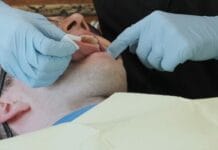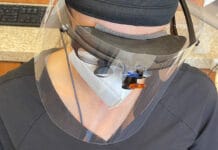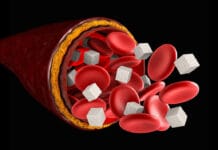Not many people like going to a dental office, whether it’s because of the amount of time that is spent or because of dental anxiety. Therefore, as dental hygienists, we try our very best to ensure that each patient has a smooth time in the office and our patients feel comfortable. However, there are a few things that patients sometimes say which make an appointment go not as great as we would like. The following are some things that patients should avoid saying when visiting the dental office.
Saying that you hate seeing the dentist and hate being here
Though seeing your dental hygienist may be the last thing you want to be spending your time doing, telling a hygienist you hate them is not a great way to start a conversation. Hate is a strong word that shouldn’t be directed at someone, especially someone who is trying to help you.
There are many things in life that people do not like doing but still have to do. For example, not many people like grocery shopping but you wouldn’t tell the grocery clerk you hate them for it simply because you didn’t like it.
If you have dental anxiety, let your dental hygienist know. Hygienists are trained to make you as comfortable as possible during your visit; there’s no reason to hate them. The word hate should be saved for animal cruelty and life-taking and debilitating diseases.
Saying that you are here to be tortured
Though most patients say this as a way to make the situation less scary or to break the ice with some form of humor, this statement could very well be taken the wrong way. Dental hygienists did not go to college for years to torture patients for their entire career. We became hygienists to provide an essential service to help people feel and be healthier.
If your gums are tender, there’s probably a cause behind it in which a hygienist would love to help you with. They can’t help you if you don’t tell them. Being open with your communication and explaining to your hygienist if and where you are feeling pain allows them to identify the source and help find you a solution.
But the internet (or a non-dental website) said…
The internet is littered with a lot of information — some useful but a lot that is just false. Pay close attention to the source of the information you are reading. Just because there is an article online that gives dental information doesn’t mean that it is correct. Some advice from non-scientific and/or non-dental sources can actually do more harm than good.
Asking your hygienist about dental related topics you have seen online is more than welcomed. Hygienists would rather you ask than to try something and cause irreversible damage. Please remember that just because Dr. Oz or Dr. Mercola (neither of which are dental professionals) said or wrote something does not make it accurate or even safe.
You actually went to college to clean teeth?!
Dental hygienists use incredibly sharp instruments in your mouth using extremely fine-tuned motor skills. Hygienists know how medications and medical conditions affect your oral health. They know the microbiology behind oral disease. Hygienists differentiate and notice oral symptoms of diseases before a patient’s body even shows symptoms. This list could go on!
Hygienists do more than “just clean teeth.” So the simple answer is yes, dental hygienists are college educated! Before entering a college dental hygiene program, there are prerequisite classes required. Some include anatomy and physiology, medical terminology, nutrition, pharmacology, biology, microbiology, etc.
Think nursing or pre-med prerequisites. After hygienists are accepted into a dental hygiene program, which is not an easy program, they must take multiple Board Exams to be licensed healthcare professionals. Like mentioned before, hygienists must also keep their licenses current by taking continuing education classes.
Inquiring about the education needed to become a dental hygienist is welcomed! There’s just a tactful way to ask about it. Would you question and argue about your nurse’s education after surgery in a hospital? I hope not! Please extend the same respect to your highly-trained dental hygienist.












